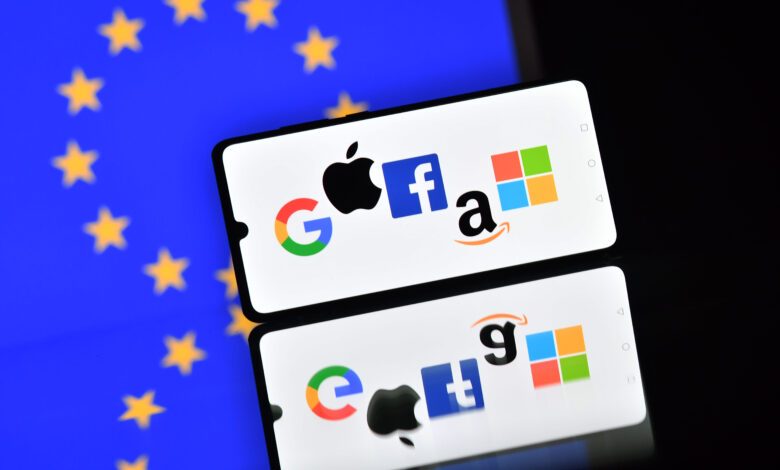
The European Union is taking aim at tech giants Apple, Amazon, Microsoft, Google’s parent company Alphabet, Facebook’s owner Meta, and TikTok’s parent company ByteDance with new digital regulations designed to curb the market dominance of online corporations.
These six companies have been designated as online “gatekeepers” and will be subject to the highest level of scrutiny under the European Union’s Digital Markets Act, a comprehensive set of guidelines aimed at preventing tech behemoths from monopolizing digital markets. The act carries the potential for substantial fines and even the requirement for Big Tech firms to divest certain parts of their businesses to operate within Europe. This initiative is part of a broader overhaul of the EU’s digital regulations that has been gradually coming into effect, following the recent implementation of the Digital Services Act, which focuses on ensuring the safety of internet users.
European Commissioner Thierry Breton, who oversees the EU’s digital policy, emphasized the significance of these developments, stating,
“The most impactful online companies will now have to play by our EU rules. DMA means more choice for consumers, fewer obstacles for smaller competitors, and opening the gates to the internet.”
The European Commission, the EU’s executive body, defines digital platforms as gatekeepers if they serve as crucial intermediaries between businesses and consumers by offering “core platform services.”
These services encompass a range of offerings, including Google’s Chrome browser, Microsoft’s Windows operating systems, chat applications like Meta’s WhatsApp, social networks like TikTok, and other intermediaries like Amazon’s Marketplace and Apple’s App Store.
These tech giants have a six-month window to commence compliance with the requirements laid out in the Digital Markets Act, a mandate that is already prompting significant changes in their operational approaches. Google, for instance, acknowledged that the new law will necessitate various adjustments to its products and services.
One of the primary objectives of the DMA is to dismantle the “closed environment” that often keeps consumers locked into a particular ecosystem.
The aim is to enhance consumer choice and mobility between different platforms. For example, under the DMA, tech companies cannot obstruct consumers from engaging with businesses outside their platforms. This may put pressure on Apple to further open up its App Store, as it faced criticism from entities like Epic Games and Spotify for not allowing them to circumvent its Apple Pay system and its associated 30% commission for subscriptions. Apple has since eased some of its longstanding restrictions.
The DMA also requires messaging services to be interoperable, facilitating communication between users of different platforms. This means that users of services like Telegram or Signal could exchange texts or video files with WhatsApp users.
To prevent anti-competitive practices, the DMA prohibits platforms from favoring their own products or services in search results over those of competitors. For instance, Amazon is barred from giving its own-brand products preferential visibility compared to third-party sellers. As part of an EU antitrust investigation settlement, Amazon had already started providing European buyers with a second “buy box” featuring different price or delivery options for the same product.
Furthermore, online services are prohibited from amalgamating a user’s personal data for targeted advertising without explicit consent. This means that Meta cannot combine user data from Facebook, Instagram, and WhatsApp without clear authorization.
Additionally, essential software or apps, such as web browsers, cannot be pre-installed by default along with the operating system, as observed with Google’s Chrome bundled with Android phones. Instead, consumers will be presented with a choice screen for selecting search engines and browsers for their devices. Google noted that it is already implementing this practice and will remind European users of their choices.
Violation of these regulations could result in fines amounting to up to 10% of a company’s annual global revenue, escalating to 20% for repeat offenders, or even the dissolution of the company itself.
The European Union’s Digital Markets Act marks a significant step toward reining in the influence of tech giants and fostering a more competitive and consumer-friendly digital landscape within the bloc.





